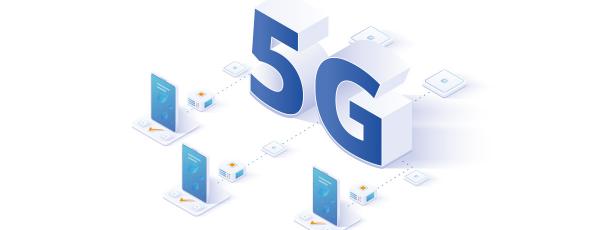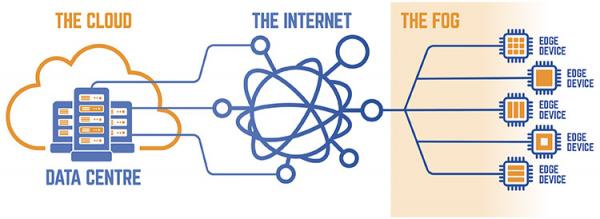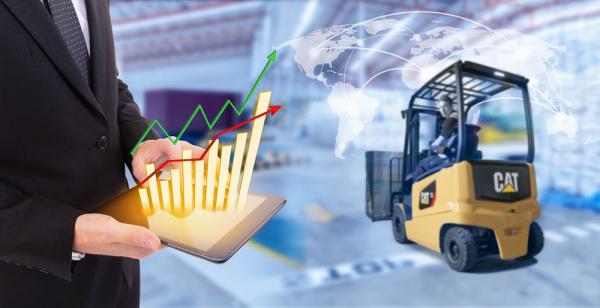You won’t need reminding that 2020 was a turbulent year and there is no doubt it has bought with it changes that will impact that way our industry operates as we head into 2021. Most notably, perhaps, is the surge in ecommerce and the impact consumer expectation for next or even same day delivery is having on logistics companies across the globe.
Beside that though there are many other things that are set to shape our industry this year. From 5G to the internet of things (IoT), we explore the emerging trends in logistics, supply chains and beyond.
Improved visibility with 5G
There are many digital trends that are expected to take hold in logistics this year, including the likes of 5G. With the roll out of 5G across the world, the logistics industry will have access to immediate and constant end to end monitoring and tracking. 5G will create a more connected logistics industry; speeding up connectivity, giving better supply chain visibility and thrusting the industry into the modern day.
Tracking and management via the Internet of Things (IoT)
IoT gives businesses the tools they need to plan and monitor their operations. It ensures the control of data between different devices without human input. IoT enabled devises are particularly suited to logistics companies as they can improve efficiency, decrease downtime and react to issues with accurate data.
The roll out of 5G will have a huge impact on IoT. IoT trackers using 5G are set to be more energy-efficient, pro-longing their life and increasing their ability to monitor vital metrics such as location.
End-to-end transparency with blockchain
There have always been security risks associated with data sharing in supply chains - documentation fraud, theft and delivery of goods all pose their own issues. But, with the introduction of blockchain, the emerging trend in logistics, things are set to change.
Blockchain has been introduced to improve transparency across the supply chain. The decentralised data sharing method ensures all associated parties can have access to data without the usual associated security risks. The secure method of data sharing is favourable to cloud solutions due to its incorruptibility which prevents data from being edited.
In 2021, we’re set to see wider acceptance of blockchain which will minimise disruptions and make for a better-connected end-to-end supply chain.
Outsourcing of supply chain activities
In 2020 with the growing pressure on logistics and supply chains due to the pandemic, companies were forced to look at their end-to-end offering. As a result, many companies recognised the benefits of outsourcing their supply chain activities in order to offer a consistent, reliable and efficient service.
As we head into 2021 and with the pandemic unfortunately still taking its toll, we can expect the trend of outsourcing to continue. This will allow companies to respond quickly to fluctuations in demand and focus on their main activities and offering.
The pressure ramps up for proven sustainability
Last year we identified sustainability as a key trend that would impact logistics in 2020. With the climate crisis still very much apparent, this is something that will continue into 2021.
As consumers become more educated about sustainability, there will be an increasing demand for products which are made and distributed responsibly. This will force companies to evaluate their processes and make adjustments to reduce their environmental impacts.
If you want to find out more about managing your environmental responsibilities, check out this article which explores some of the key changes you can make. One of the key ways companies may look to improve sustainability is through the use of artificial intelligence (AI), which will also continue to be a trend in 2021.
AI is here to stay
Another digital trend that will transform materials handling businesses in 2021 is AI. We spoke about this last year, but as technology advances, this is something we’ll see more of as we head into 2021.
Logistics, supply chains and materials handling businesses can benefit from AI for many reasons. AI can help spot patterns which can help companies manage demand and eliminate the need for guesswork. AI can also help to automate processes using algorithms that look closely at previous processes; boosting efficiency and reducing the risk of error.
A time of change
With consumers becoming more conscious of their environmental impacts, technologies advancing quickly and the pandemic still making its presence felt, this is set to be a time of rapid change for the industry.
If you’re looking for reliable and efficient materials handling equipment to help you manage and keep up with the pressures, take a look at our complete range of lift trucks and other warehouse equipment.
To find out more about what our experts have to say on other industry related matters, don’t forget to head over to our blog.



